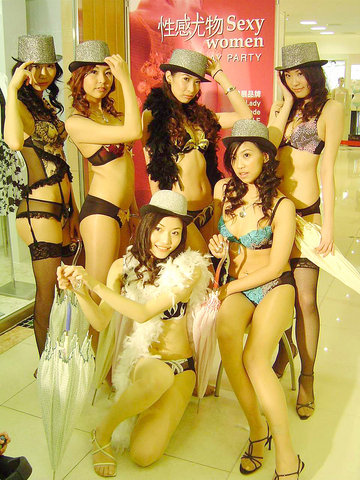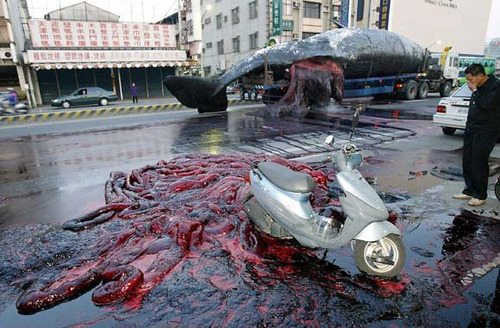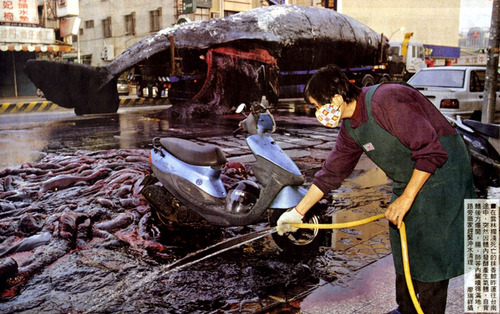Imagine for a moment that you’re in the market for a new house, and you’re locked in a heated negotiation with the seller. You make a number of lowball offers, but he doesn’t budge from his initial position. At last, you agree to his price, partly because it’s within your budget, and partly because you REALLY have your heart set on that house.
But then, a funny thing happens. Two weeks after your bargaining session, he calls you with an unexpected offer. He’s gonna give you a break – you cab have the house for a price near your initial offer. Needless to say, you’re left scratching your head.
A very similar thing recently happened regarding statues of former dictator Chiang Kai-Shek in Taiwan. The military proposed removing Chiang statues from bases and military schools. "Never!" cried the KMT. What if we just got rid of old or damaged statues, the military then proposed. "Not a single one goes," answered the KMT. And soon, the KMT got its way. The Taiwanese military agreed to the KMT’s price, and the statues remained in place.
Then, just like in my parable, a funny thing happened. Two and a half weeks after winning the battle over the Chiang statues, a curious editorial appeared in the China Post. Not surprisingly, they defended Chiang’s record as president and general. There was, however, this bit of added criticism:
While in Taiwan, the Gimo had a personality cult started. His defeated army that came with him and the people of Taiwan were taught to worship him as the "savior of China." The Military Academy in Fengshan claims its roots in Whampoa, of which he was the founding commandant. His statues were erected there and in practically every other military installation to perpetuate that leader worship.
We are glad that none of Chiang’s successors have tried to develop a personality cult.
I had something similar to say regarding Chiang’s deification in an earlier post. So what was the China Post‘s proposed solution?
Military installations should remove his statues to put a formal end to his personality cult, but the Military Academy must be allowed to keep its founder’s statue to remember his contribution to the education of the cadre for the Army of the Republic of China.
Now, the reader is suddenly in much the same position as the buyer of my story. Let’s be honest: it isn’t very often that a seller will table his bottom line demands AFTER winning for himself a better deal. Here’s a couple of theories for you to take your pick from:
1) The KMT and the China Post were always willing to be reasonable about removing Chiang statues, but the proposal seemed so radical and arbitrary that it would have been a major loss of face for them to show any signs of initially accepting any part of it. This theory implies that the Chiang supporters would have been more comfortable with a quieter, more slowly-implemented policy. It also implies that the pro-independence parties either badly bungled the handling of the issue by moving too quickly and publicly, or that they deliberately tabled a motion that they knew would get shot down in flames, simply to gin up support from Chiang detractors.*
2) The China Post recognizes that the KMT has won the battle, not the long-term ARGUMENT. Perhaps they realize that the statues of the Chiangs are numbered (see my reasoning here) and are beginning the long process of retreat on the issue.** It was not for nothing that I titled these posts, Rearguard Actions; the entire point of a rearguard action is to fall back to a more defensible position.
* Another possibility should be mentioned, too. The independence parties may have merely wanted to stimulate DEBATE regarding the place of a dictator’s statues in a democratic society, not to actually remove them. Conducting an under-the-radar removal policy would have left the independence parties open to charges of being undemocratic sneaks, and would not have served the purpose of provoking debate on the statues so that some kind of societal consensus on them could be reached.
(It’s times like this that I think it unfortunate that I can’t read Chinese. While expat bloggers have debated the issue at length, I have absolutely no idea of what the quality of the debate has been like in the Taiwanese press.)
** I confess preferring Theory 2 to Theory 1, but admit to being puzzled by the abruptness and scale of the China Post‘s retreat on the issue. If this editorial is to believed, then "the long process of retreat" seems like it may not be quite so long after all. I AM surprised that the China Post arrived at their current, fairly reasonable position without proposing some sort of more incremental, intermediate step.


